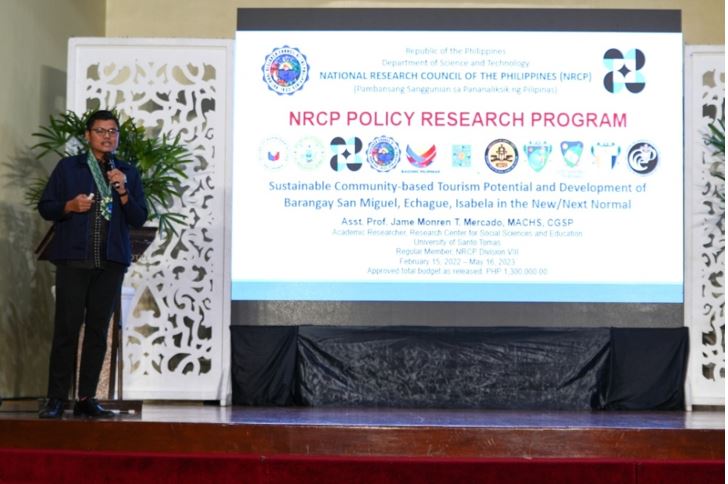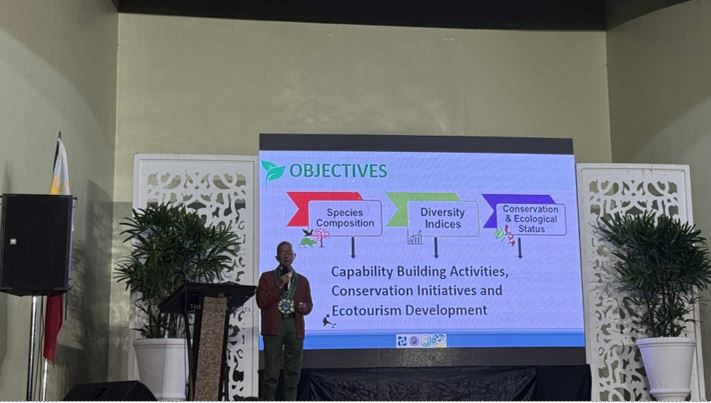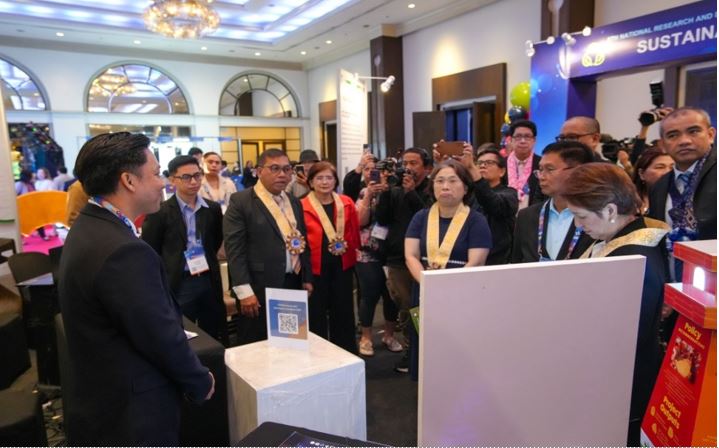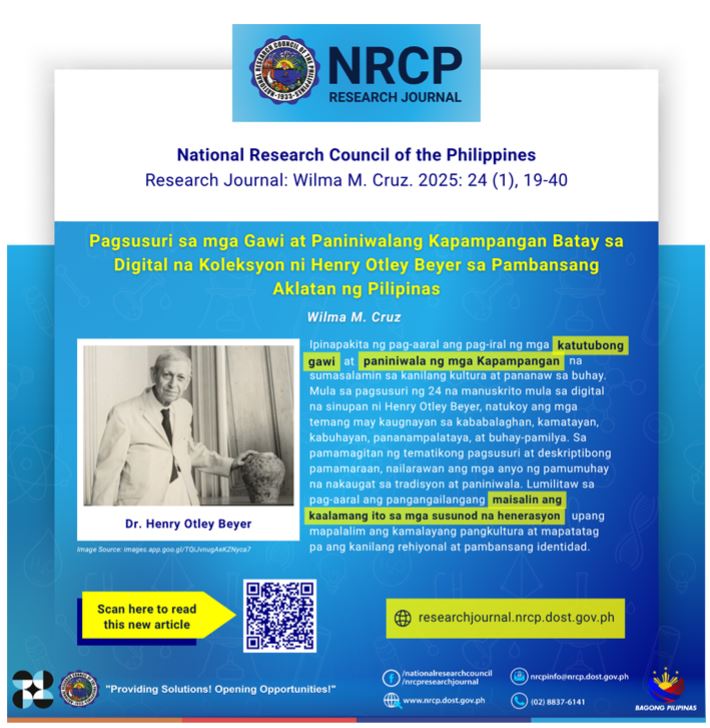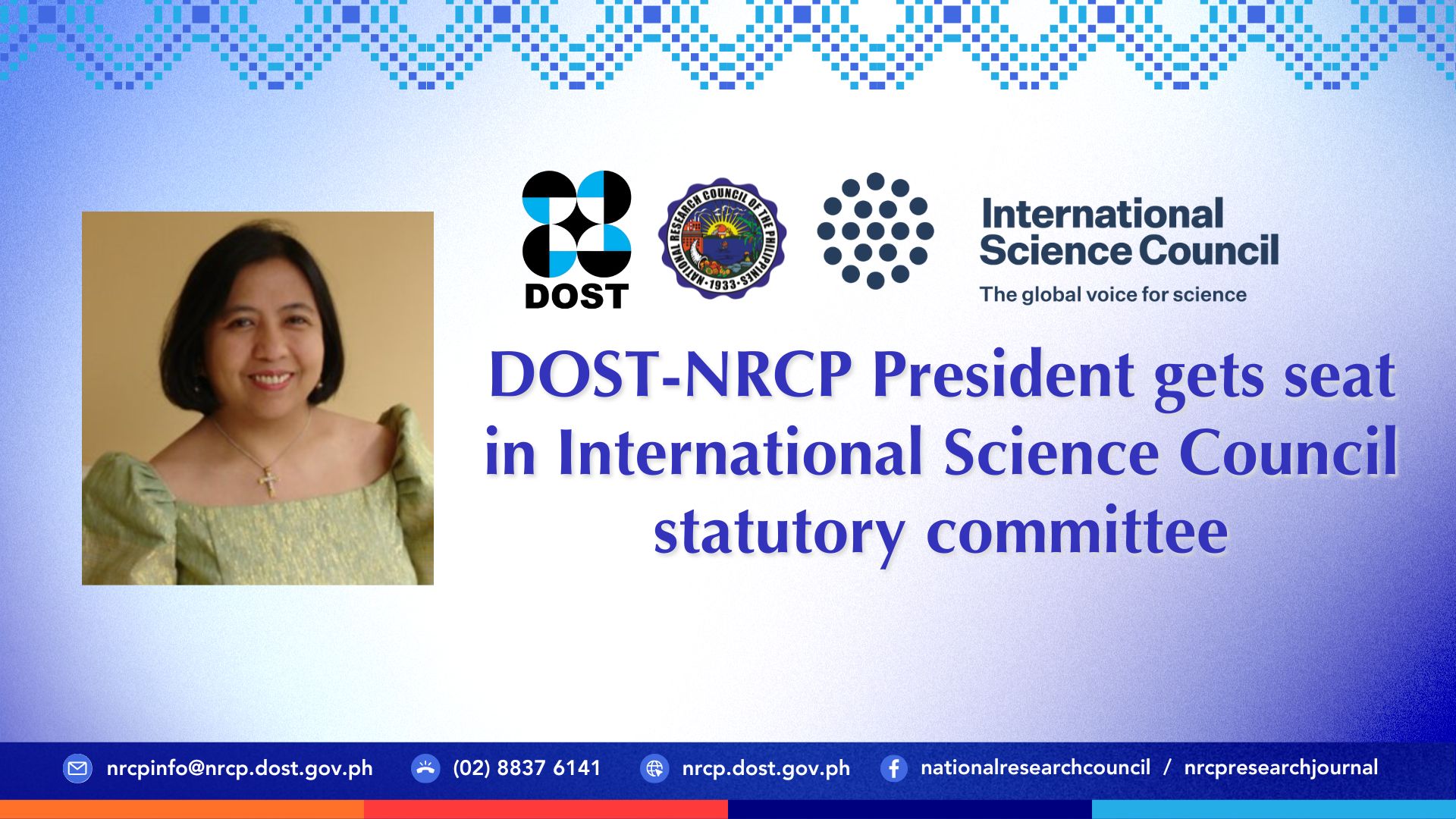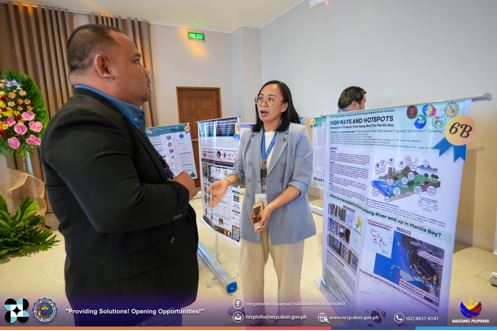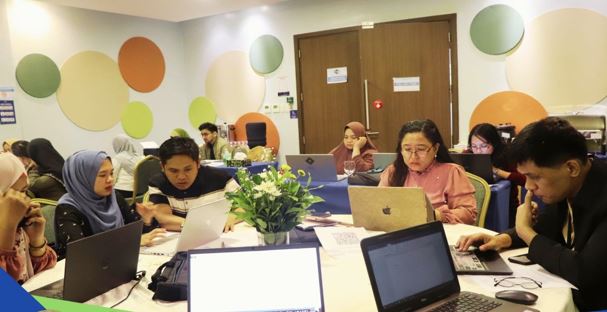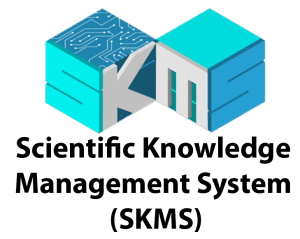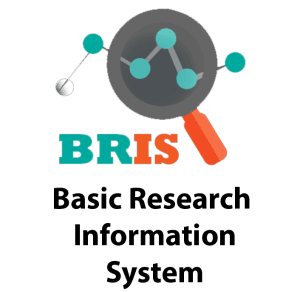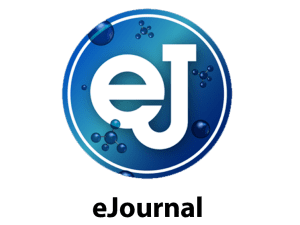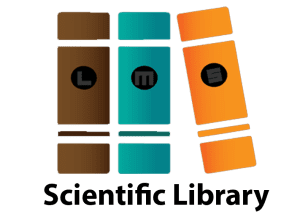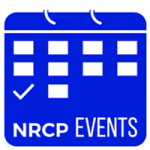DOST-NRCP Presents Research-to-Policy Projects on Environmental Sustainability at 8th National Research and Development Conference
Research projects that directly shaped local environmental policies and sustainable development efforts were presented by the Department of Science and Technology – National Research Council of the Philippines (DOST-NRCP) during the 8th National Research and Development Conference (NRDC) held July 23–24, 2025 at The Manila Hotel.
The Council highlighted how science-based contributed to governance, including local ordinances, development plans, and protected area proposals aimed at preserving biodiversity and promoting community-based tourism.
Two research projects were presented in a session that emphasized the impact of research on environmental sustainability.
Mr. Jame Monren T. Mercado, a regular member of the NRCP Division of Social Sciences, shared his research “Sustainable Community-Based Tourism Potential and Development of Barangay San Miguel, Echague, Isabela in the New/Next Normal.” His work helped shape the Barangay San Miguel Sustainable Tourism and Strategic Development Plan (STDP) 2023–2033, which aims to promote local economic development while safeguarding cultural assets and the environment through legislation, including regulations on sustainable tourism practices. Mr. Mercado emphasized the crucial role of inclusive community participation and holistic planning for a sustainable environment.
In the succeeding presentation, Dr. Victor B. Amoroso, a regular member from the NRCP Division of Biological Sciences, shared his research “Biodiversity Inventory, Assessment and Conservation for Ecotourism Development in Mt. Agad-Agad, Lanao del Norte,” which resulted in the passage of two barangay ordinances and one city ordinance in Iligan City. This effort supported the city’s legislative groundwork to pursue national protected area status for Mt. Agad-Agad. Dr. Amoroso pointed out how the results of this research informed both local conservation policy and national environmental planning by providing crucial biodiversity data.
Meanwhile, NRCP associate member Dr. Richard V. Dumilag from the NRCP Division of Biological Sciences, featured “The Making of San Bernardino Islands’ Cultural and Ecotourism” during the conference exhibit. It showcased a model of the San Bernardino lighthouse, an ecotourism dossier, and a proposed tour map for sustainable tourism activities for the island cluster. The project promotes sustainable coastal development, biodiversity conservation, and community engagement to inform future municipal ordinances and regional development plans that will oversee the management of the San Bernardino Islands in Sorsogon.
In his keynote message, DOST Secretary Dr. Renato U. Solidum, Jr. emphasized the shared responsibility of attaining research-driven development across all region.
“The government can only do so much in setting the pace of research and development in the Philippines… We call on our researchers to help us build our science and push for more impactful innovations; to our policy makers to support our initiatives towards removing the barriers to innovation through legislation and funding,” he urged.
NRCP’s research-to-policy (R2P) approach mirrors this call, bridging scientific evidence with local governance to support environmental protection, climate resilience, and the sustainable development goals. The featured projects demonstrate how R2P translates research outputs into actionable local policies and development plans.
Anchored on the theme, “Leveraging Transdisciplinary R&D for Wealth Creation, Wealth Protection, Human Well-Being and Sustainability,” the conference aimed to strengthen the role of science-based research in nation-building and address pressing national concerns through research and innovation.
Government researchers, policymakers, scientists, private sector stakeholders, and academic leaders participated in the event.
The annual NRDC is organized by the DOST and its attached councils and institutes to showcase science, technology, and innovation (STI) that address national priorities and promote public engagement with research and development. (Rose Dagupen, S&T Media Services)
